| Sadie Tenner Mossell Alexander (b. 1/2/1898 – d. 11/1/1989) |
Sadie Tanner Mossell Alexander accomplished many “firsts” in her lifetime. Born January 2, 1898 in Philadelphia, Pennsylvania, Alexander would go on to become the first African-American woman to receive a Ph.D. in Economics and the first African-American woman to receive a law degree from the University of Pennsylvania and become a Pennsylvania lawyer.
Born Sadie Tanner into a prominent African-American family, she grew up in the home of her uncle Henry Ossawa Tanner, the internationally renowned painter. Her grandfather was Benjamin Tucker Tanner, bishop of the African Methodist Episcopal (AME) church and editor of both the African Methodist Episcopal Review (1884-1888) and the Christian Record (1868-1884). Aaron Albert Mossell, her father, was a graduate of Lincoln University and the first African American to graduate from the University of Pennsylvania Law School in 1888. Louis Baxter Moore, her uncle, was the first African American to receive a Ph.D. from the University of Pennsylvania.
 |
| Henry Ossawa Tanner |
Sadie Tanner attended high school at the famous M Street High School in Washington D.C., which was later named Dunbar High School. She was encouraged by her mother and the historian Dr. Carter G. Woodson to continue her education. She was accepted into the University of Pennsylvania and by 1918, she received a Bachelors of Science degree in Education with honors. In 1919, she received a Masters of Art degree in Economics. By 1921, she received a Ph.D. in Economics from the Wharton School of Economics at the University of Pennsylvania, becoming the first woman of African descent to receive a Ph.D. in Economics. Active in the leadership of the Delta Sigma Theta Sorority, community development issues were very important to Alexander. This was reflected in the topic of her doctoral dissertation: “The Standard of Living Among One Hundred Negro Migrant Families in Philadelphia.”
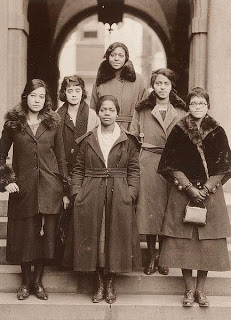 |
| Alexander with sisters of Delta Sigma Theta Sorority |
After graduating from the University of Pennsylvania, Alexander became an actuary with the North Carolina Mutual Life Insurance Company, a Black-owned insurance company in the then booming Black Wall Street in Durham, North Carolina. In 1923, Alexander married Raymond Pace Alexander, an alumni of Harvard Law School and recently barred as an attorney in Pennsylvania. Shortly after marrying Raymond Pace Alexander, she returned to school to study law.
 |
By 1927, Alexander became the first African-American woman to receive an L.L.B. from the University of Pennsylvania Law School and was also admitted to Pennsylvania State Bar as an attorney. Alexander was joining a tradition started by Lutie Lytle, the first African-American woman lawyer in the United States. Attorney Lytle had received her law degree in 1897 from the Tennessee Law School.
“The heyday was Reconstruction, really,” states law professor Judith Kilpatrick, author of the Arkansas Law Review “(Extra)Ordinary Men: African-American Lawyers and Civil Rights in Arkansas Before 1950,” speaking on the practice of law by African Americans before and after Reconstruction, a brief historical period immediately proceeding the end of the U.S. Civil War. By 1890, like many other states, Arkansas began to pass laws “that forced Black people out of public office and made it impossible to vote,” says Kilpatrick.
 |
| Attorney Sadie Alexender |
By the time Alexander joined her husband’s law firm, African American lawyers were faced with significant state-imposed legal challenges to the civil rights secured after the U.S. Civil War. Together with her husband, Alexander challenged Jim Crow laws, fighting against segregation and discrimination in Philadelphia’s restaurants, hotels, and theaters. She was the first African-American woman to serve as assistant city solicitor of Philadelphia, and was elected secretary of the National Bar Association in 1943, the first woman to hold a national office in the NBA.
‘Black professional women may shed light on the unique experience of a group that has conquered double discrimination,” states McLean Tobin, author of The Black Female Ph.D. “In most cases being both Black and female produces a defeating situation. Sadie Alexander overcame this ‘double jeopardy,’ and paved the way for her sisters to pursue doctoral degrees.”
In 1947, U.S. President Harry S. Truman appointed Alexander to the President’s Committee on Civil Rights. During her tenure under this federal appointment, the report “To Secure These Rights”, became the basis for future civil right policy making. In 1959, Alexander opened her own law office and practiced there for nearly 20 years. In 1974, Alexander received a fifth degree from the University of Pennsylvania, an honorary degree of Doctor of Laws. By 1976, she closed her law office and joined the law firm of Atkinson, Myers and Archie. She maintained an active membership in nearly three dozen local and national civic organizations while practicing law. On November 1, 1989, attorney Alexander died at the age of 91 in her beloved Philadelphia, Pennsylvania.






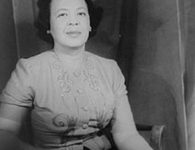
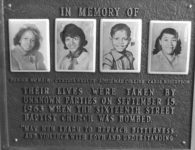
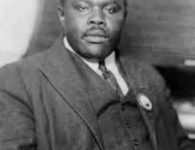
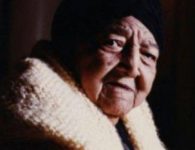




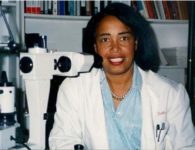

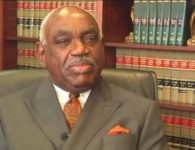
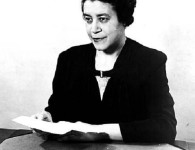
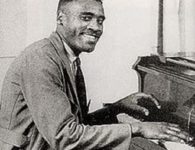


2 Comments
INSTAGRAM FOLLOWERS GENERATOR.Turn into a regional celebrity. Get limitless totally free followers currently and impress your mates!Get you free of charge followers for Instagram from listed here : http://free-followers-ig.cf/
5 Reasons to Use Home Remedies to Treat Eczema.When it comes to treating and managing eczema, sufferers have many choices.You may have heard that home remedies work, but do they? Although our bodies are all different, they have proven effective for many. That is just one of many reasons why home remedies are recommended for the treatment of eczema, continue reading on for five more.Reason #1 – Affordability.When using home remedies to treat eczema, you may need to purchase a few supplies, but they are pretty affordable when compared to prescription medications.Moreover, you may already have what you need inside your home. In that case, no additional money is needed to seek relief.Reason #2 – No Doctor’s Visits.Not only does avoiding the doctor save you money, but it also eliminates a major hassle.If you work outside of the home or are a parent, you must arrange time off from work or childcare.Don’t lose money or time with your kids. Home remedies enable you to treat your eczema from home and with ease.Reason #3 – Many Choices.Home remedies are treatment options you can do at home. For eczema, you have many choices. Something as simple as locking in moisture with lotion after a bath is considered a home remedy, as is drinking plenty of water.Other home remedies include wet wraps, oatmeal baths, oatmeal pastes, and diet changes.With many home remedies to choose from, you are sure to find an easy to implement remedy that works.Reason #4 – Fewer Risks.Home remedies for eczema are used as alternatives for prescription medications and some over-the-counter products.Many sufferers opt for home remedies because they are safer. There are fewer risks and side effects. Your goal is to seek treatment, not have other medical issues and complications to deal with too.Reason #5 – You Have Nothing to Lose.As previously stated, most home remedies for eczema are affordable, safe, and you have many choices. Most importantly, you are able to avoid the hassle of regular doctor’s appointments.With these benefits and a high rate of success in many eczema patients, what do you have to lose?Nothing. If you haven’t already tried home remedies to manage and treat your eczema, try them. Chances are you will like the end result.